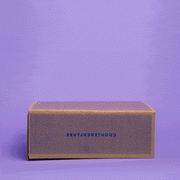Sharbo Maro acquired this farm in 2015, though he estimates the land has been producing coffee for nearly 130 years. Sitting at 1,850 meters in Wenago county, just outside of Yirgacheffe town, the farm is managed mainly by Sharbo and his sons’ families. The primary variety grown is Kurume, found alongside other improved varieties common in the area. After harvesting, coffee cherries are floated to remove any damaged fruit, then depulped and left to ferment under water for 24 hours, with the water being refreshed roughly every six hours. After this period, the coffee is washed and left to soak for another 24 hours before a final wash and transfer to raised drying beds.
Coffees in Ethiopia have traditionally been processed in the natural-sundried method. In the 1970s, farmers in Ethiopia started experimenting with the washed processing method. Today, washed coffees from Ethiopia are some of the most sought-after and renowned in the world for their excellent flavor, complexity, and clarity.
Sharbo Maro is a member of Jabanto, a group of smallholder farmers in the Gedeo zone working together to export their coffees. Since its formation in 2017, Jabanto’s members have been continuously striving to improve quality through good agronomic and post-harvest processing practices, and most produce natural-sundried coffees. Sharbo Maro is one of a few members of Jabanto with the space and equipment needed to produce washed coffee. Since we started buying his coffee in 2020, his lots have consistently ranked among our favorite offerings from Ethiopia each year.
![]()
![]()
![]()
![]()
![]()
![]()
![]()
![]()













